Water Conservation
As you may know your sewer bill is generated from water meter readings. Every gallon of water you use is bought by you when it enters your house, and when it leaves. The surest way to lower your sewer bill is to practice water conservation. The less water you use, the lower your sewer bill will be.
As a bonus, your water bill will be lower too!
The following are water conservation tips that you can use to lower your consumption.
• Leaky toilets waste a lot of water. Did you know that your toilet could have a leak that you may not even know about? To test your toilet for "invisible leaks" place a few drops of food coloring or a dye tablet into the toilets tank. Wait a few minutes and if the coloring appears in the bowl, you have a leak.
• A leaky faucet that drips just two tablespoons per minute can waste 15 gallons per day, which is 105 gallons per week and 5,475 gallons per year. This increases your sewer bill by nearly $20.00 per year. So, make sure you have no leaks!
• Don't use the toilet as a wastebasket; Regular toilets use 5 to 7 gallons of water per flush. Make sure you dispose of paper waste properly by putting it in the trash.
• If you can, replace your old toilet with a low-flow toilets which only uses about 1.5 gallons per flush compared to 5 to 7 gallons with a regular toilet. If you are unable to replace your toilet, place a toilet tank dam or a full one liter water bottle in your toilets tank. This will help displace the water, allowing the toilet to use less water after each flush.
• Install low-flow shower heads or faucet aerators. These can save a tremendous amount of water compared to regular shower heads and faucets.
• Don't allow the water to run when brushing your teeth. This can waste up to two gallons of water in a typical brushing. Instead, wet your toothbrush, brush your teeth, and then turn the water on again to rinse. This can save your over 1400 Gallons of Water per year.
• Use your dishwasher and washing machines only for full loads.
• Keep a pitcher of tap water in the refrigerator. Letting the water run to cool off is wasteful.
• Water your lawn only when it needs it. A good way to determine if your lawn needs watering is to step on it. If it springs back up, no watering is needed. If it remains flat, time to water. A benefit of watering less frequently is that your lawn becomes more conditioned to drier soil and is better able to stave off a drought.
• Only water your lawn or garden in the early morning or late afternoon. Watering during the middle of the day allows the majority of the water to evaporate and can cause burned grass. Watering at night attracts bugs and can cause mold.
• Use a broom instead of the hose to clean your driveway or sidewalk.

